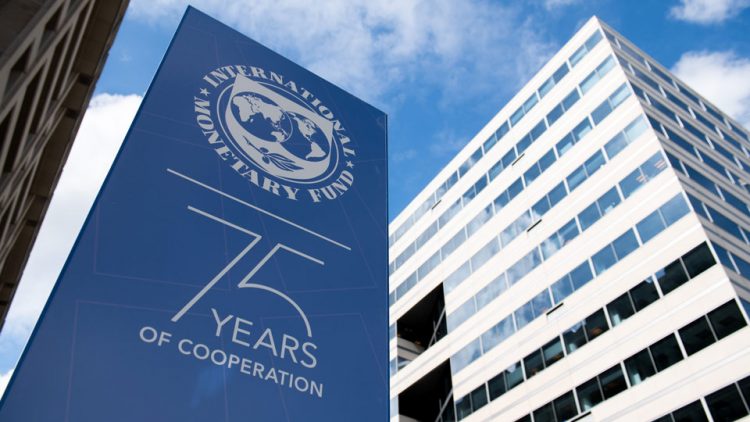The International Monetary Fund (IMF) has said that the world, led by G20 countries, has taken unprecedented and synchronized measures that put a floor under the world economy, including $12 trillion in fiscal actions and massive liquidity support from central banks.
The Fund also said that COVID-19 vaccine production and other faster progress on widely shared medical solutions could add almost $9 trillion to global income by 2025.
IMF Managing Director, Kristalina Georgieva, who disclosed this in a statement released yesterday ahead of the G20 leaders virtual meeting this week, said more earnings would help narrow the income gap between poorer and richer nations at a time when inequality between countries is set to increase.
She said that the world, led by G20 countries, has taken unprecedented and synchronized measures that put a floor under the world economy, including $12 trillion in fiscal actions and massive liquidity support from central banks.
READ ALSO: IMF: Covid-19 may shrink global imbalances further in 2020
According to her, the global economy faces a critical juncture but countries have started to climb back from the depths of the COVID-19 crisis. However, the resurgence in infections in many economies shows just how difficult and uncertain this ascent will be.
“The good news is the significant progress on vaccine development. While there are many caveats, this raises hopes of vanquishing the virus that has taken more than a million lives and caused tens of millions of job losses.The not-so-good news is the severity of the pandemic and its negative economic impact,” she said.
Georgieva explained that last month, the IMF projected a historic global Gross Domestic Product (GDP) contraction of 4.4 per cent in 2020. And we expect a partial and uneven recovery next year, with growth at 5.2 per cent.
Data since its latest projections confirm the global recovery has continued. For many economies—including the United States, Japan, and the Euro Area—economic activity in the third quarter turned out stronger than expected. But the most recent data for contact-intensive service industries point to a slowing momentum in economies where the pandemic is re-surging.
Georgieva said that while a medical solution to the crisis is now in sight, the economic path ahead remains difficult and prone to setbacks.
“Faster-than-expected containment of the virus or the development of better treatments would allow for a quicker return to normal activity, limit economic scarring, and boost growth.On the downside, if new outbreaks require more stringent mobility restrictions, or if the development, production, and widespread distribution of vaccines and treatments is delayed, social distancing will persist for longer. As a result, growth will be lower, public debt higher, and the scars on the long-term potential of the economy more severe—think of how extended job losses can harm the human capital of workers,” she said.
She said the resurgence in infections is a powerful reminder that a sustainable economic recovery cannot be achieved anywhere unless we defeat the pandemic everywhere. Public spending on treatment, testing, and contact tracing is now more important than ever.
So, too, is cooperation across borders to lower the risk of an inadequate supply of vaccines, treatments, and tests. This means stepping up multilateral efforts on the manufacturing, purchase, and distribution of these health solutions—especially in poorer nations. It also means removing recent trade restrictions on all medical goods and services, including those related to vaccines,” she added.
According to Georgieva, many developing nations continue to face a precarious situation, largely because of their more limited capacity to respond to the crisis. And globally, economic and financial uncertainties remain high. For example, elevated asset valuations point to a disconnect of financial markets from the real economy, with inherent risks to financial stability.



